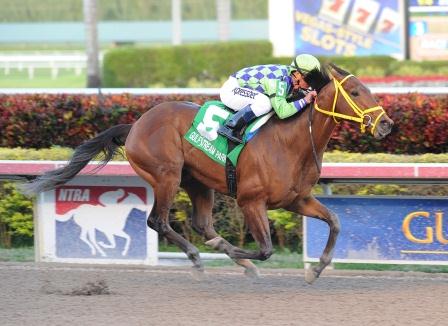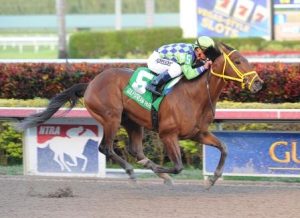Horse Racing in Cameroon Could Unlock Income for Businesses

These communities are also sparingly dispersed in other parts of the country.
While many people tend to focus on the importance of cattle for their survival, many have paid little attention to horses. This brings me to the lucrative business of gambling in horse racing in Cameroon.
From the early times, horses were used for riding, the hauling of loads, and much more. That is no longer the case, especially in Cameroon. Today, most horse breeding is primarily for horse racing.
In fact, horse racing has reached such tremendous levels that many people will offer almost anything for it – not just for the fun of watching the sport, but more so for the large-scale gambling that is involved.
This has become an important part of Cameroonian life.
The origin of horse racing in Cameroon can be traced to a place called Kumbo in the Bui division of the Northwest region of the country. It is greatly influenced by the Mbororo, a nomadic tribe of cattle breeders originally from the West and Northwest Central African Republic, with a settlement in the Bamenda plateau grasslands. This is an integral part of life for the Mbororo people.
Through their influence, a famous annual horse race event took place at the Tobin Municipal Stadium. This was organized by the then Ministry of Youth and Sports. The events were discontinued for financial reasons.
But the more interesting thing going on today is Horse Gambling, commonly called “tiercé”
Tiercé has been a popular phenomenon since its advent in the country in the late 1990s. Cameroonian gamblers are known to bet on horse racing events taking place in other countries, mainly in the homelands of its former colonial masters-Britain and France.
The French horse betting company Paris Mutuel Urbain set up its first kiosks in Cameroon in the late 1990s and was named Paris Mutuel Urbain Camerounais.
Horse bets are legal in Cameroon. Even though a 2005 finance law imposed stricter guidelines and steeper taxes on Cameroon’s gambling activities, a 1992 law allowed for gambling operations in the country to take place.
But despite this government action, many Cameroonians continue to view gambling with mixed feelings.
While the practice continues, others see it as a French neocolonial strategy to exploit Cameroonians, and the acronym PMUC was nicknamed “Paris Must Use Cameroon.”
PMUC has since embarked on an aggressive PR campaign to boost the company’s relations with the Cameroonian population and succeeded in winning the goodwill of members of the Muslim community, who traditionally abhor gambling. PMUC now owns a second division team in the Cameroon Football League.
Nevertheless, with football no longer a lucrative business in the country, interest in the game has now shifted to other income-generating sports.
The question now is this: Could gambling in a sport like horse racing someday receive more recognition in Cameroon? Could this help boost Cameroon’s economy in some fashion?
This makes me think about the Chinese, for example, who own horse racing companies that have attracted a huge following from the Chinese population and beyond.
Investors in the business receive revenue from ticket sales, media licenses to sponsorship opportunities at the local and international levels. In return, investors pay huge taxes to the government. This is something for the Cameroonian nation to emulate.

